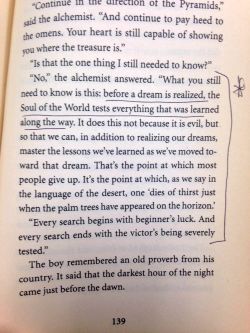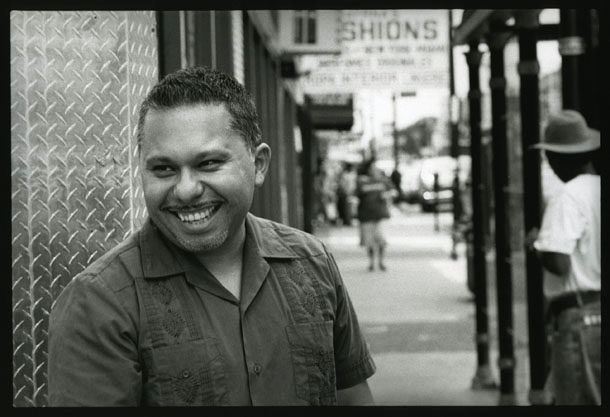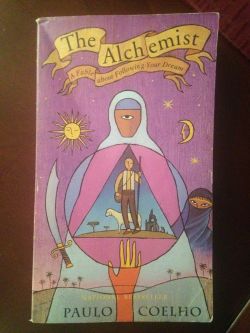Educator and blogger Ray Salazar, who teaches junior and senior AP English in Chicago Public Schools on the Southwest side, said a book that has been significant to his teaching was The Alchemist, by Brazilian writer Paolo Coelho. The short novel, which has been hailed as a favorite from Former President Bill Clinton to movie star Will Smith, is the fable of Andalusian shepherd boy Santiago, who embarks on a far-flung journey in search of Egyptian treasure after a powerful dream. Along the way, Santiago encounters spiritual messengers in the form of different characters, and meets an alchemist, who becomes his teacher.
Salazar recently told MindShift why The Alchemist had such a big impact on him, and ideas from the book influence how he talks to students, and how he sees himself as a teacher. The conversation has been edited for clarity and length.

Salazar: The Alchemist is a book of fiction. It’s about a shepherd boy who has this recurring dream about treasure at the foot of the Egyptian pyramids. And on that journey, things happen: he gets robbed, he’s going to get a job at a crystal shop, he moves along with some caravan, and then he falls in love at an oasis. He eventually meets an alchemist, and this alchemist starts talking to him about pursuing a personal legend, and he says that every person, every thing in the universe has the power to transform itself into something greater, and that’s our responsibility in life. So Santiago continues on his journey, and he realizes that his personal legend does not lie at the foot of the pyramids—the dream was just to encourage him so he could take that risk, and eventually find the true meaning in his life.
I found The Alchemist about 18 years ago in a bookstore, back when there were still bookstores, and to be honest with you, I picked up the book because it had a pretty cover. It was unlike anything I’d ever read. I liked the whole spirituality of it, but it wasn’t religious; I liked his whole idea of this kid with big dreams—that kind of reminded me of being a kid with big dreams. I just got hooked into the story. [At the time] I’d been a teacher for two years, and I worked really hard to get that degree, and I was starting to see more and more how teaching is incredibly difficult, and I started to wonder if I’d made the wrong decision, if I should have been a lawyer like I’d originally wanted when I was 15 years old. The book gave me the vocabulary to figure out how to listen for my dream—how we have to have a dream, and if we don’t have a dream, we have to listen, and listen to our instincts, and listen to the signs that the universe does send to us, so that we can figure out what that dream is, so that we have a purpose in life.




